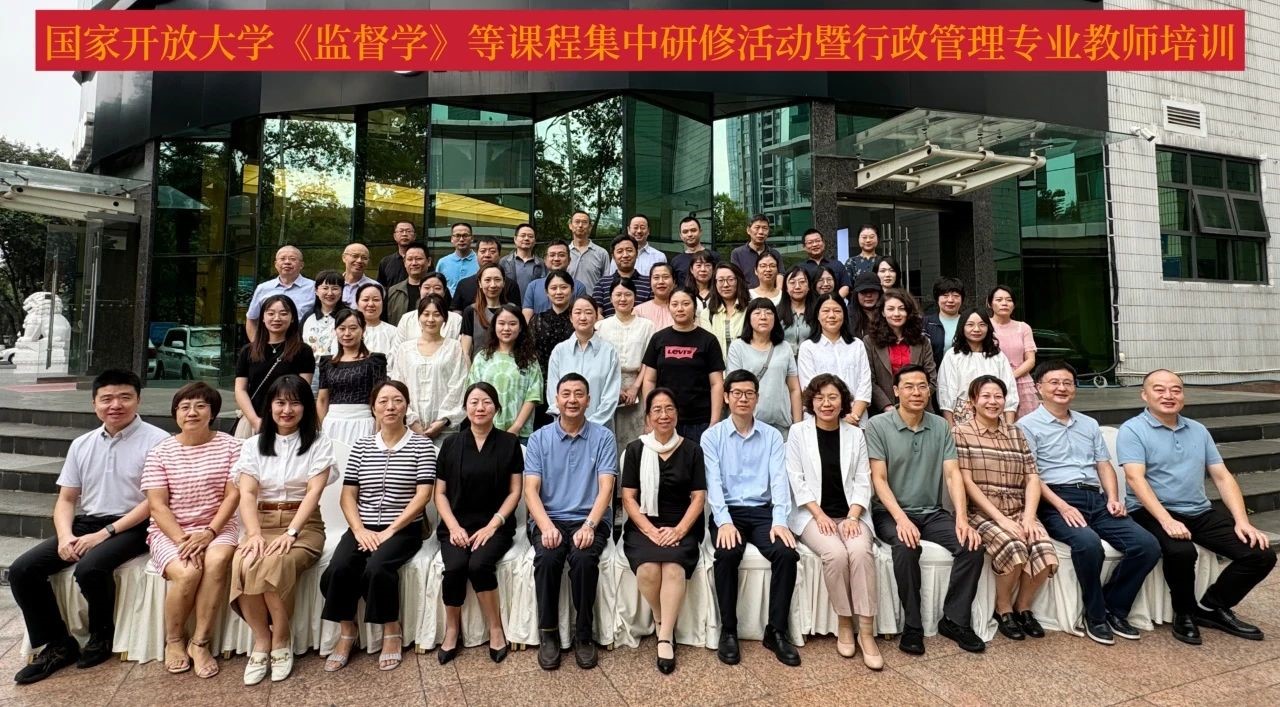 To implement the relevant requirements in "Key Tasks of the Open University of China for 2024", further improve teachers' course teaching level, and promote the high-quality development of the Administrative Management specialty, from 24th to 25th September, the School of Political Science and Law of the Open University of China (OUC) held an intensive training session for three courses, namely "Supervision Science", "Urban Management", and "Social Investigation Research and Methods", as well as a teacher training for the Administrative Management specialty in Mianyang City, Sichuan Province.
To implement the relevant requirements in "Key Tasks of the Open University of China for 2024", further improve teachers' course teaching level, and promote the high-quality development of the Administrative Management specialty, from 24th to 25th September, the School of Political Science and Law of the Open University of China (OUC) held an intensive training session for three courses, namely "Supervision Science", "Urban Management", and "Social Investigation Research and Methods", as well as a teacher training for the Administrative Management specialty in Mianyang City, Sichuan Province.
Nearly 60 teachers from the headquarters and more than 30 branches and schools across the country participated in this activity. The event consisted of special-topic research, exchange and discussion, and on-site observation.

In the special-topic research session, Professor Lang Peijuan from China University of Political Science and Law, the chief editor of the textbook "Supervision Science", gave a special lecture titled "A Ramble on China's Supervision Theories and Practices". Combining rich theoretical knowledge, real-life cases, and practical experience, she systematically expounded on the concept of supervision, the process logic and citizen logic of supervision from the perspective of comprehensive supervision. She emphasised that special attention should be paid to the supervision of the Party's power, micro-power, and soft-power at present, and encouraged teaching and research personnel in "Supervision Science" to keep trying interdisciplinary learning so as to have a broader and deeper understanding of supervision theories and practices. Professor Zhang Bo from Peking University, the chief editor of the textbook "Urban Management", with the title of "Some Thoughts on the Teaching of 'Urban Management' Course", starting from the process and achievements of China's urbanisation development as well as the new challenges and tasks faced, comprehensively analysed the valuable experience accumulated in China's urbanisation development over the past 40 years and the future direction with the framework of "one main line, two emphases, three-dimensional support, four -type divergence, and five suggestions".
During the exchange and discussion session, the participants carried out in-depth exchanges around topics such as grass-roots teaching models, integration of ideological and political education into courses, team building, practical teaching (social investigation), and examination reform.
In the on-site observation session, the teachers systematically investigated the emergency rescue and urban reconstruction in the Beichuan earthquake disaster, which deepened their understanding of urban disaster management issues and accumulated rich case materials for future teaching of urban management and related courses.
This activity was widely praised by teachers from various branches and schools. It enhanced the understanding of system-wide teachers about the theoretical development frontiers of corresponding courses and teaching practice reforms, strengthened the construction of course teaching teams and specialty construction, promoted the combination of theory and practice in course teaching, and was helpful for the continuous improvement of the teaching level and education quality of the Administrative Management specialty.
Written by Cheng Ming, photo by Cui Yue, OUC